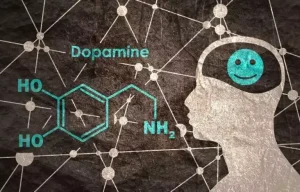
Neuroscientists call this the gut brain, not meant to be disrespectful, it’s just what they call it. They, their their stomach hurts, they get acid, they have other digestive problems, etc. That part of what’s going on is they feel ashamed of themselves. Ironically, the shame because it’s so stressful will lead to continued addictive behaviors, and so you get locked in this vicious cycle. But if a parent can understand that in a shame alcohol rehab cycle, it’s what I call situational sociopathy. All I mean by that is that your son or daughter isn’t a sociopath.
How to Deal with Emotional Burnout
- As a result, this stigma becomes a significant barrier, preventing many from seeking the help they need to begin or continue their recovery journey.
- This support system can play an essential role in helping individuals stay sober and cope with any challenges that arise.
- Engage in mindfulness meditation or other mindfulness practices to increase awareness of the present moment and reduce rumination on past mistakes.
- Those two parts of your brain are part of the limbic system, which controls involuntary physiological processes like heartbeats, digestion, and filtering your blood.
Through these activities, people can release themselves from self-blame and the emotional burden that comes with it. However, building a support system requires effort and patience. It would be best if you had friends or family members who understand your situation and genuinely care about seeing you succeed in your recovery journey. In addition, consider joining local support groups or seeking professional help from therapists guilt and shame in recovery or counselors if needed. You look at a functional MRI brain scan of somebody with an active addiction. There’d be no way to understand how that person would say I’ve got to stop They would hit bottom and have a moment of clarity.

What It Feels Like After the 5th Step
Guilt prompts us to identify actions that we regret and to correct these actions in our future behavior. This act of sharing breaks the cycle of isolation that shame creates. It shifts our perspective from self-judgment to self-acceptance, showing us that no matter what we’ve done, we are still worthy of recovery and forgiveness.
- Barriers include fear of change, shame, resistance to accountability, and lack of self-awareness.
- Shame can be particularly complicated in recovery because it can shake your belief in your ability to change and grow.
- Embark on your journey to a better life with cocaine detox.
- If you or someone you love is facing addiction, remember that recovery is a brave and powerful journey.
Overcoming Stigma in Addiction Recovery

The experience of shame often exacerbates any present addiction and vice versa. After the euphoria dissipates, they will feel shame for having relapsed. DBT for shame and guilt often involves group therapy sessions where clients practice applying DBT skills in role-plays and other experiential exercises.
How to Heal From Guilt and Shame in Recovery
This reflection allows individuals to gain insight into their behavior and motivations, paving the way for self-understanding and growth. Recognize the courage and strength it takes to confront feelings of guilt and shame in recovery. This can lead to feelings of guilt for the actions they took while under the influence or when struggling with their mental health. Maybe a childhood birthday party, a college graduation, or cherished time spent laughing with friends.


This process doesn’t just offer relief; it lays the foundation for emotional freedom and long-term recovery. Moreover, peer support services complement counseling efforts by connecting individuals =https://ecosoberhouse.com/ in recovery with nonclinical professionals who have firsthand experience with problematic substance use. This additional support network enhances the recovery journey by providing understanding, empathy, and encouragement, creating a nurturing environment conducive to sustained sobriety and well-being. Furthermore, engaging in religious or spiritual practices to seek forgiveness from a higher power can also be a meaningful step in the self-forgiveness process 4.